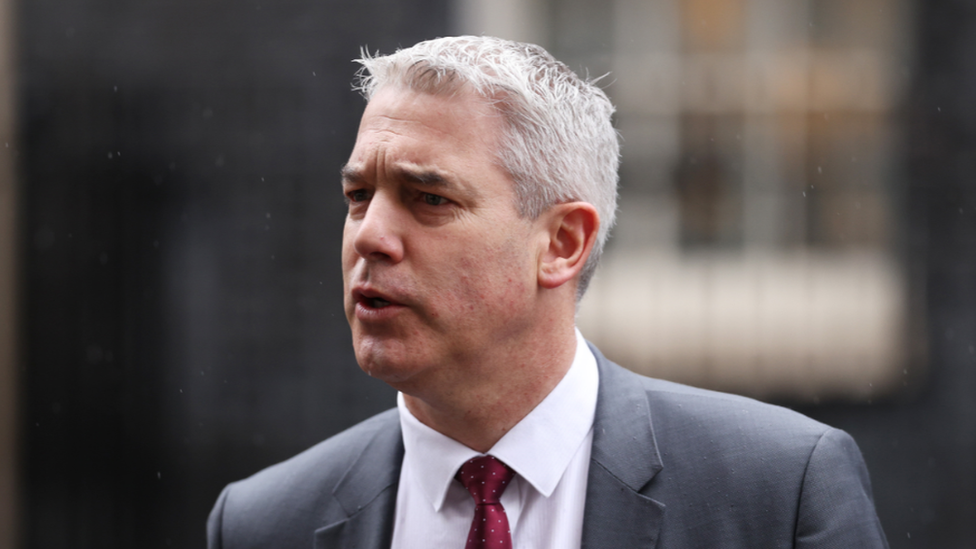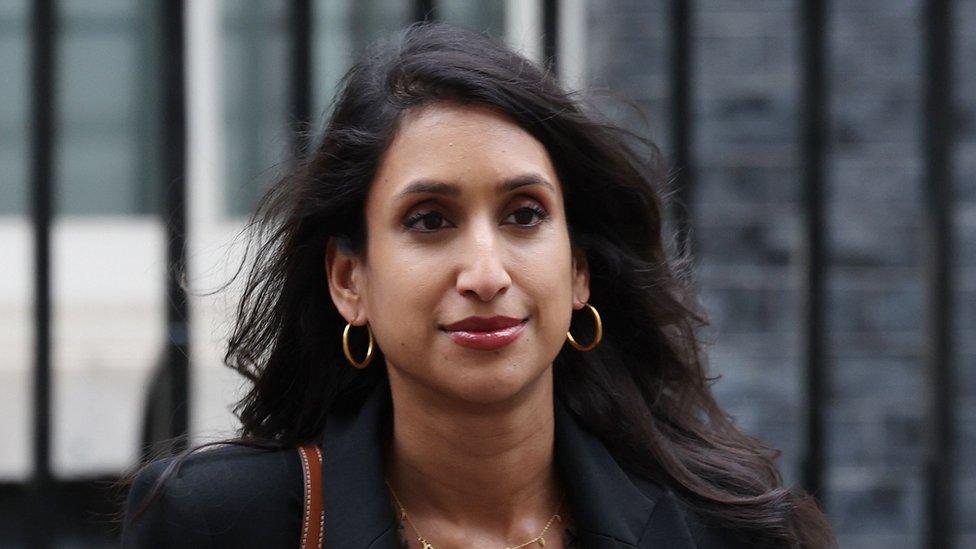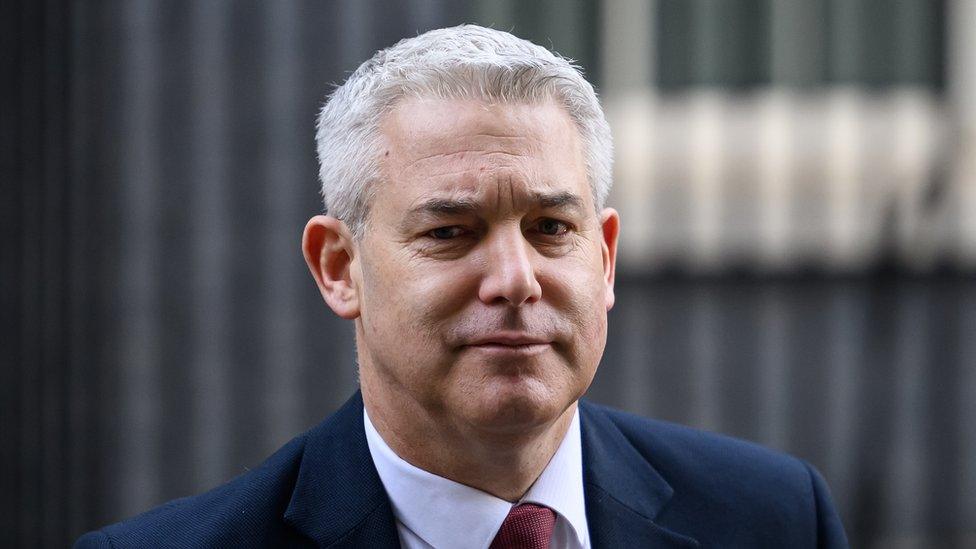Steve Barclay apologises over role in local waste project decision
- Published

The environment secretary has apologised for not "formally" stepping back sooner from a decision on a controversial power plant in his constituency.
Steve Barclay has vocally opposed the planned scheme in his Cambridgeshire seat, which requires a permit from an agency sponsored by his department.
The decision has been handed to a junior minister in the department.
It came after officials raised concerns after Mr Barclay's role in the process.
MVV Environment, a German energy company, wants to build the plant in Wisbech, in Mr Barclay's North East Cambridgeshire constituency.
It would be one of Europe's biggest waste-to-energy incinerators, burning non-recyclable waste in order to generate energy for local industrial use.
The scheme was given the go-ahead last month by the Department for Energy Security and Net Zero (Desnez), following a recommendation from the Planning Inspectorate.
But to move ahead, the scheme also requires a permit from the Environment Agency (EA), sponsored by Mr Barclay's environment department.
After the energy department gave its approval, Mr Barclay told his local newspaper the decision was "terrible news" and he would "continue to do everything possible to fight" against the incinerator being built.
The BBC has seen legal advice which raised "serious concerns of perceived bias" over a plan to stop the incinerator being built.
Labour has also raised questions over Mr Barclay's role, asking for him to disclose any communication he has had with the Environment Agency.
'Wasn't made aware'
At a scheduled appearance before a committee of MPs, Mr Barclay was asked to confirm when he formally recused himself from the decision.
Mr Barclay did not give a date, but apologised to the committee for not "formally recusing myself sooner," and noting his opposition to the scheme on his ministerial register of interests.
"I said the policy needed to be delegated to another minister, recognising the importance of the ministerial code in terms of conflicts of interest and also the perception of any conflicts of interest," he said.
"I wasn't made aware until later that I required a formal recusal. I thought by delegating it, I had acted to, in essence, take myself and step back from it.
But he added he did so "as soon as I was notified" by the most senior civil servant in his department.
He also told MPs he had never "made representations as secretary of state" to the Environment Agency about the project.
Mr Barclay still faces questions over when he formally stood back from the project, and handed the decision over.
It has also not been confirmed when a decision on the incinerator will be made. It also remains unclear whether the decision will be subject to a legal challenge.
'Perception of bias'
Legal advice seen by the BBC offers a view on "the proposal for an urgent direction to the EA to pause permitting applications for up to a year."
It concludes that this "would be unlawful because the consultation undertaken with the EA was plainly inadequate. The context of the secretary of state's constituency interests and recent public comments adds powerful exacerbating feature given the perception of bias."
The BBC revealed last week that concerns about Mr Barclay's relationship to the case had been raised by civil servants, prompting discussions with Whitehall's propriety and ethics unit.
Following Mr Barclay's committee appearance, Labour's shadow environment secretary Steve Reed said the public "deserve answers".
"Who did Barclay try to persuade, when, and which other ministers were involved?" he asked.
Related topics
- Published26 March 2024

- Published21 March 2024
